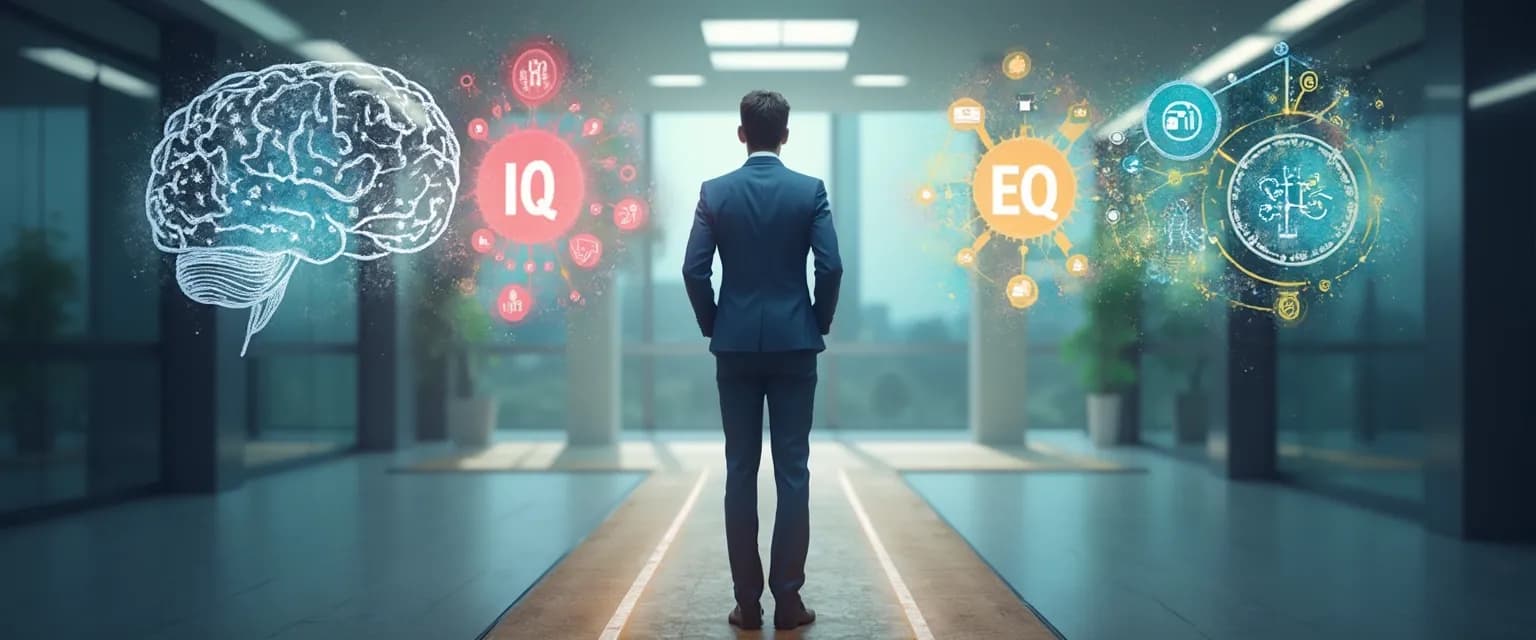IQ vs EQ: Which Intelligence and Emotional Intelligence Truly Drives Workplace Success
Ever noticed how the smartest person in the room isn't always the most successful? That's because traditional intelligence and emotional intelligence play different yet crucial roles in professional advancement. While IQ has historically been the golden standard for predicting success, emotional intelligence (EQ) has emerged as a powerful competitor in determining who thrives in today's workplace.
Recent research reveals that intelligence and emotional intelligence work in tandem to create workplace superstars. A study from Harvard Business Review found that executives with high emotional intelligence were 127% more productive than those with lower EQ scores. Meanwhile, intelligence still predicts about 25% of career success factors, according to workplace performance studies. The question isn't which matters more—it's how these complementary forces shape our adaptability to change and drive professional growth.
The most effective professionals have mastered intelligence and emotional intelligence integration, creating a balanced approach that serves them across various workplace scenarios. But does one type of intelligence ultimately predict greater success? Let's explore the fascinating interplay between these essential workplace capabilities.
How Intelligence and Emotional Intelligence Shape Different Career Paths
Different career trajectories benefit from varying balances of intelligence and emotional intelligence. In highly technical fields like engineering, data science, and medical research, traditional intelligence often provides a measurable advantage. These roles require complex problem-solving, analytical thinking, and specialized knowledge that correlate strongly with IQ measurements.
Conversely, leadership positions, sales roles, and human-centered professions thrive on emotional intelligence. A 10-year study tracking MBA graduates found that EQ was twice as important as IQ in predicting career success for those in management. People with strong emotional intelligence excel at team building, conflict resolution, and navigating social dynamics—essential skills for organizational leadership.
Consider the finance industry, where both intelligence types prove valuable in different contexts. Investment analysts rely heavily on traditional intelligence to evaluate complex market data, while financial advisors need emotional intelligence to understand client needs and build trust. The most successful finance professionals develop both capabilities.
Research from the Yale Center for Emotional Intelligence found that employees with higher EQ scores received better performance evaluations and larger salary increases, regardless of their role. However, this doesn't diminish the importance of traditional intelligence. Instead, it suggests that intelligence and emotional intelligence create a powerful synergy when developed together.
Developing Both Intelligence and Emotional Intelligence for Workplace Excellence
The good news? Both intelligence and emotional intelligence can be enhanced throughout your career. While traditional intelligence has some genetic components, cognitive abilities can be strengthened through continuous learning, challenging mental exercises, and exposure to diverse problem-solving scenarios.
Emotional intelligence development often yields even more dramatic improvements. Research shows that targeted EQ training programs can boost emotional intelligence by up to 25% within just six months. Here are practical strategies for enhancing your emotional intelligence alongside cognitive abilities:
- Practice self-awareness by regularly reflecting on your emotional responses to workplace situations
- Develop active listening skills that help you understand colleagues' perspectives
- Learn emotion regulation techniques that prevent impulsive reactions
- Seek feedback on how others perceive your emotional responses and communication style
Forward-thinking companies now evaluate both intelligence types during hiring and promotion decisions. Google famously looks for "cognitive ability" alongside emotional intelligence markers like empathy and communication skills. Microsoft incorporates emotional intelligence assessments in leadership development programs, recognizing that technical expertise alone doesn't create effective managers.
The future workplace increasingly demands professionals who can leverage both intelligence and emotional intelligence. Automation is rapidly handling tasks that require pure computational intelligence, while uniquely human capabilities like emotional understanding, creative collaboration, and adaptive problem-solving become more valuable.
Ultimately, the most successful professionals don't choose between intelligence and emotional intelligence—they cultivate both. By developing these complementary capabilities, you'll be equipped to navigate the complex human dynamics of the workplace while applying sharp analytical thinking to your field's challenges. This balanced approach to intelligence and emotional intelligence development creates versatile professionals who thrive in our rapidly evolving work environments.




